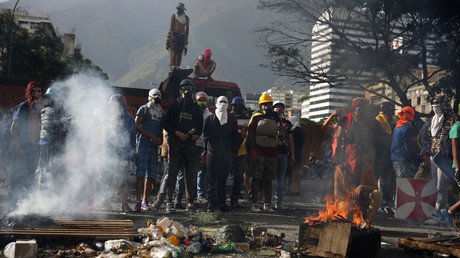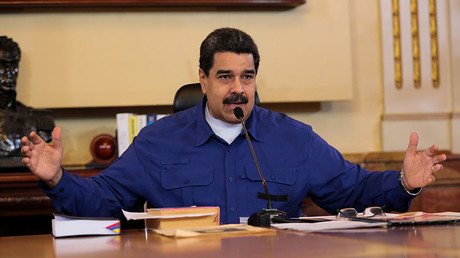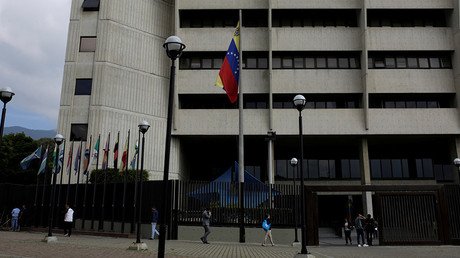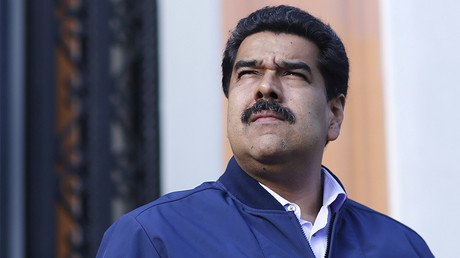Election meddling: US sanctions 13 Venezuela officials, warns against electing Constituent Assembly
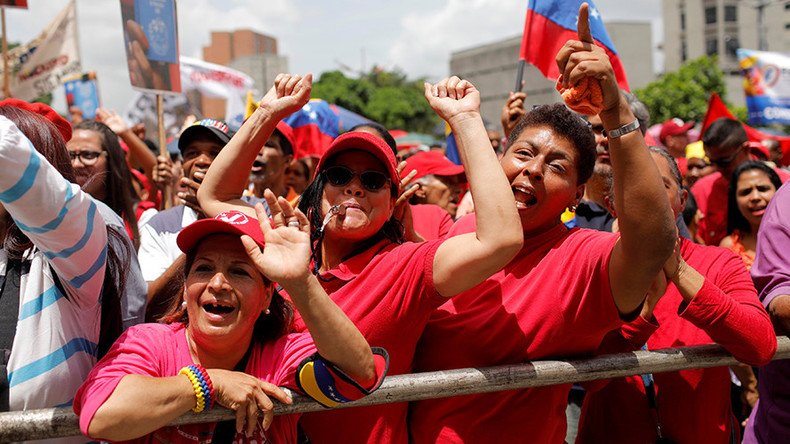
The Trump administration has imposed sanctions on 13 senior Venezuelan officials and threatened drastic economic measures if Caracas goes ahead with Constituent Assembly elections. The interference has been justified by the body’s “threat to democracy.”
Among the 13 officials placed on the Treasury Department’s sanctions list for “undermining democracy” are President of Venezuela's National Electoral Council Tibisay Lucena, Interior Minister Nestor Reverol, national police chief Carlos Perez, army commander General Jesus Suarez, and National Guard commander Sergio Rivero.
The vice-president for finance of Venezuela’s state oil corporation PDVSA, Simon Zerpa, also made it to the sanctions list.
"Anyone elected to the National Constituent Assembly should know that their role in undermining democratic processes and institutions in Venezuela could expose them to potential US sanctions,” Treasury Secretary Steven Mnuchin said Wednesday.
Under the sanctions, the blacklisted officials are barred from traveling to the US, any assets they may have in the US will be frozen, and Americans are prohibited in doing business with them.
Speaking to reporters on background, two senior Trump administration officials said the sanctions were a message to the government in Caracas not to proceed with the election for the Constituent Assembly, scheduled for July 30.
“It is our hope that Maduro will change his mind, but if he does go through with it, they can expect strong and swift economic actions,” one official said. Potential future measures include financial sanctions that would ban the use of dollars in buying and selling Venezuelan oil, or a total ban on oil imports into the US, Venezuela’s biggest customer.
Venezuelan President Nicolas Maduro was dismissive of the measures, calling Washington’s sanctioning of officials a “recognition” of their loyalty to the country.
He said the sanctions represent a moral “victory” for the Venezuelan state, Correo del Orinoco quotes.
“American imperialism cannot in the 21st century pretend to put itself above international law, above nations,” Maduro said, adding that a foreign government cannot hope to pick whoever it pleases in another nation.
Venezuelan Education Minister Elias Jaua, who is also the head of the Presidential Commission for the National Constituent Assembly, a former Venezuelan foreign minister and one of the people on the US blacklist, tweeted that he considers sanctions “a recognition [of] my 34 years of struggle for national sovereignty, for the poor of this land.”
The Secretary General of the Bolivarian Alliance for the Peoples of Our America (ALBA), listing Cuba, Ecuador, Venezuela among its members, denounced the sanctions and called on the South American and Caribbean nations to join him in actively protesting the measure.
“The authorities have an obligation not to accept such statements and I do not understand why many of them remain silent,” David Choquehuanca said on Wednesday, arguing that Venezuela had fallen victim to outside aggression aimed at seizing its natural resources, such as oil, gold and freshwater.
President Maduro says that Sunday’s election is the only way of establishing a legitimate government and restoring peace after four months of violent protests that have claimed over 100 lives.
In March, Venezuela’s Supreme Court dissolved the National Assembly, saying the legislature was in contempt of the law for swearing in lawmakers whose elections were ruled invalid. The assembly had been controlled by Maduro’s opponents since January 2016.
US officials described the election as an “incredible threat to democratic institutions” and a line that, if crossed, “could be the end of democracy in Venezuela.”
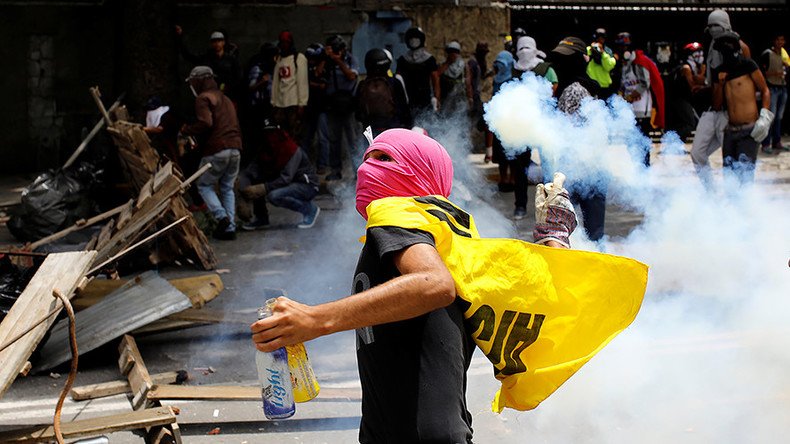
On Monday, Maduro accused the US of plotting “regime change” in Caracas, after CIA Director Mike Pompeo made a comment about discussing “transition” in Venezuela with the authorities in Mexico and Colombia.
“Suffice to say, we are very hopeful that there can be a transition in Venezuela,” Pompeo said over the weekend at the Aspen Security Forum in Colorado, adding that he recently discussed the issue during his visit to Mexico City and Bogota, “trying to help them understand the things they might do so that they can get a better outcome for their part of the world and our part of the world.”
Asked about Pompeo’s statement Wednesday, the Trump administration officials said he was “speaking on his own behalf” and that they had no further comment.
